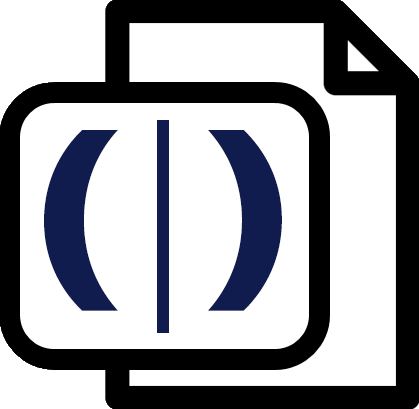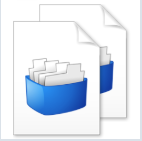
projectTermExtract
By Trados AppStore Team
Free
Description
This projectTermExtract plugin adds a very neat feature to Studio allowing you to extract term candidates from your Project, or specific files within a project. The plugin works by adding a file containing the terms to Studio for translation, and then converts the file to a termbase and adds it to your project.
The plugin also provides for some simple refining of the extraction using a very simple and visual interface that makes the process of term extraction incredibly simple, and enjoyable to work with.
If you want to use these terms in your own termbase then this can be easily achieved by using the Glossary Converter, or alternatively you can provide the termbase as a MultiTerm termbase or in another format as a nice value add solution for your customer.
To learn how to use this application, please check the Documentation tab.
Technical details
5.1.1.0 - Trados Studio 2024 SR1 (CU3)
Changelog:
- Ensured compatibility with the Trados Studio 2024 SR1 CU3 build
Checksum: 90b046b30d57b3204955d989ca0058fe291540cb4bc28fa3c0a8912ad19dce34
Release date: 2025-11-04
5.1.0.1 - Trados Studio 2024 (SR1)
Changelog:
- updated to accommodate Studio 2024 SR1 changes
- Add reference to Sdl.Multiterm.TMO.Interop.dll from the MultiTerm installation folder instead of Studio
Checksum: cccbd6dd95bf5e348d2c62989566e1c6c4e2075afedefb429f9dda3725edd16c
Release date: 2025-07-14
5.0.0.2 - Trados Studio 2024
Changelog:
- Implemented an IApplicationInitializer to identify if the FilesController or ProjectsController is active.
- Updated the feature that loads the Project Terms dialog.
- Check if the FilesController is active.
- If FilesController is active then load the Project Terms dialog in selected Project Files mode.
- If no files are selected, then select all for the active target language.
- Check if the ProjectsController is active.
- If not, then active it and load the Project Terms dialog in selected Project mode.
- Check if any projects are active
- If no project is active, then activate the first selected project, or first project in the absense of a selected project
Checksum: cee53110ad5e025e9c2695a1d1ef4221ba56ff3e5190cae05173989e29ccff45
Release date: 2024-07-08
4.1.3.0 - Trados Studio 2022 SR1 (CU8+)
Changelog:
- Accommodate changes CU8 specific, fixed an issue with "Object reference not set for an instance of an object" error while extracting terms
Checksum: 8184d618dc37a40f994f5cba957013eede2de570a1b3540f0ca4ac66fe64e497
Release date: 2023-10-15
3.0.1.0 - Trados Studio 2021
Changelog:
- updated plugin version to 3.0.1.0
- updated studio maxversion to 16.9
- updated author to "Trados AppStore Team"
- updated NuGet dependencies to the latest versions (Microsoft.ApplicationInsights, Microsoft.CSharp, Sdl.Core.PluginFramework, Sdl.Core.PluginFramework.Build, System.Diagnostics.DiagnosticSource)
Checksum: 78b13f2f5219c90b51fe85d729bc47e9e30e44cdc7e52c74295b0bef7251c5e2
Release date: 2022-04-10
2.0.3.0 - SDL Trados Studio 2019
Changelog:
Created new version for Studio 2019
Checksum: 36526bed4e1226dab22567e7a9b3e36c9a53916afb6f76173ed108ce52541b1c
Release date: 2018-12-31
1.4 - SDL Trados Studio (2017, 2015)
Changelog:
No related information.
Checksum: 0b8a9bc7acbad6e31e5ed278b2918e3c35ff6aecf317c8e560cdc65c8051bd70
Release date: 2018-07-12
Support website: https://community.rws.com/product-groups/trados-portfolio/rws-appstore/f/rws-appstore
Shared products:
Trados Studio 2024 SR1 (CU3)
5.1.1.0
- Ensured compatibility with the Trados Studio 2024 SR1 CU3 build
Trados Studio 2024 (SR1)
5.1.0.1
- updated to accommodate Studio 2024 SR1 changes
- Add reference to Sdl.Multiterm.TMO.Interop.dll from the MultiTerm installation folder instead of Studio
Trados Studio 2024
5.0.0.2
- Implemented an IApplicationInitializer to identify if the FilesController or ProjectsController is active.
- Updated the feature that loads the Project Terms dialog.
- Check if the FilesController is active.
- If FilesController is active then load the Project Terms dialog in selected Project Files mode.
- If no files are selected, then select all for the active target language.
- Check if the ProjectsController is active.
- If not, then active it and load the Project Terms dialog in selected Project mode.
- Check if any projects are active
- If no project is active, then activate the first selected project, or first project in the absense of a selected project
Trados Studio 2022 SR1 (CU8+)
4.1.3.0
- Accommodate changes CU8 specific, fixed an issue with "Object reference not set for an instance of an object" error while extracting terms
Trados Studio 2022
4.0.3.1
- Updated plugin manifest to ensure that the plugin will not attempt to install into Trados Studio 2022 SR1. This is important because the SR1 release contains breaking changes that will cause this version of the plugin to prevent Studio from starting. There will be a further update of this plugin specifically for the 2022 SR1 release either alongside, or shortly after SR1 is made publicly available.
4.0.1.0
- Upgrade to Studio 2022
Trados Studio 2021
3.0.1.0
- updated plugin version to 3.0.1.0
- updated studio maxversion to 16.9
- updated author to "Trados AppStore Team"
- updated NuGet dependencies to the latest versions (Microsoft.ApplicationInsights, Microsoft.CSharp, Sdl.Core.PluginFramework, Sdl.Core.PluginFramework.Build, System.Diagnostics.DiagnosticSource)
SDL Trados Studio 2019
2.0.3.0
Created new version for Studio 2019
SDL Trados Studio (2017, 2015)
1.4
No related information.
Introduction
The plugin allows users to extract term candidates from the Project, or specific files within a project. The plugin works by adding a file containing the terms to Studio for translation, and then converts the file to a termbase and adds it to the project.
The plugin also provides for some simple refining of the extraction using a very simple and visual interface that makes the process of term extraction incredibly simple, and enjoyable to work with.
If you want to use these terms in your own termbase then this can be easily achieved by using the Glossary Converter, or alternatively you can provide the termbase as a MultiTerm termbase or in another format as a nice value add solution for your customer.
The application is compatible with Studio 2017 and Studio 2019.
NOTE: article needs to updated with reference to this post - https://community.sdl.com/product-groups/translationproductivity/f/openexchange_applications/29965/projecttermextract---instructions
How to use:
* Important: The application flow can also be found within the video: https://www.youtube.com/watch?v=RtK0iv5RsCk&feature=emb_logo and it's also described within the article: https://multifarious.filkin.com/2017/09/19/and-the-winner-is/
1. Open a project / Create new one.
2. Select the file(s) on which the project term should run.
3. Right click on the selected file(s) and select the "Extract Project Terms" option.

4. Press on the "Extract Terms From Selected Files" (you can see that below, the terms are displayed within the Project Terms Cloud view.

5. After the terms were extracted, press on the "Include terms file to the project" (this allow you to generate the termbase based on the file)

How to generate Termbase
After the process of including terms is finished, press F5 in Studio to refresh the project, and right click on the new added file -> Select "Generate termbase" option.

*You can check the new termbase from Project Settings-> Language Pairs-> All Language Pairs -> Termbases section

How to generate a new termbase using the same file
If you want to generate again the termbase for the same file, the following steps needs to be performed:
- Go to Project Settings -> Language Pairs -> All Language Pairs -> Termbases and remove the termbase from your project.
- Close Studio.
- Go to your project folder in Windows Explorer and delete the Tb folder.
- Go to C:\Users\{UserName}\AppData\Local\Temp\ and delete the Tb folder.
- Open Studio -> you should be able now to generate the new termbase.









